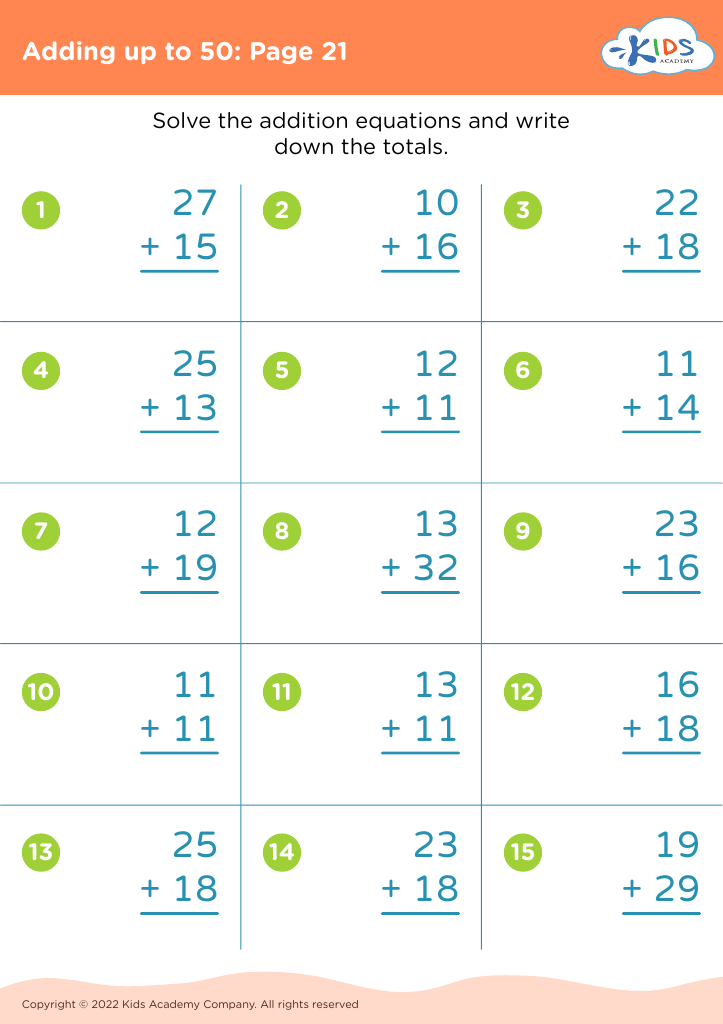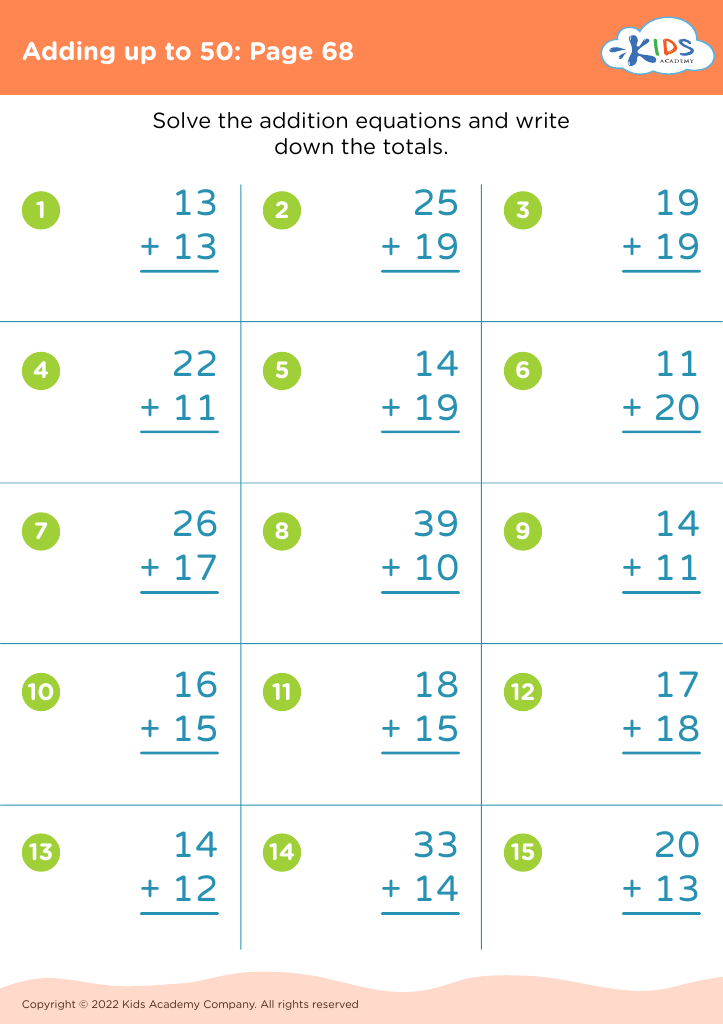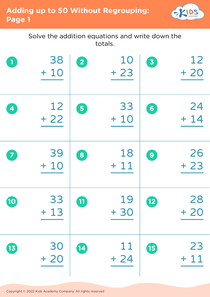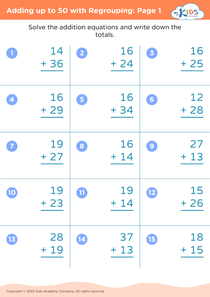Simplifying Fractions Adding up to 50 Misc Worksheets for Ages 4-8
4 filtered results
-
From - To
Discover our engaging "Simplifying Fractions Adding Up to 50" miscellaneous worksheets, specially designed for children ages 4-8! These colorful, interactive resources provide young learners with a fun way to grasp the concept of simplifying fractions. With a variety of exercises, children will develop essential math skills while working on addition and fraction simplification. Perfect for classroom activities or at-home practice, our worksheets encourage critical thinking and problem-solving abilities. Support your child's mathematical journey with these easy-to-understand materials that make learning enjoyable. Explore our collection today and watch your little ones build confidence in their math skills!
Parents and teachers should care about simplifying fractions and activities like "Adding Up to 50 Misc" for children aged 4-8 because these foundational math skills promote critical thinking, number sense, and confidence in young learners. At this early stage, children are developing their understanding of basic mathematical concepts, which sets the groundwork for more complex ideas in the future.
Simplifying fractions, even in a playful way, introduces children to the concept of equivalence and helps them see the relationships between numbers. This understanding is crucial as they learn to manipulate and compare fractions in later grades. Engaging activities involving the number 50 can highlight concepts of addition, patterns, and basic numerical operations, fostering an environment of inquiry and discovery.
Moreover, making math fun and relatable through games or visual aids stimulates interest and engagement, which is essential for sustained learning. Teachers and parents can encourage a positive attitude towards mathematics early on, reducing fear of the subject and building a love for problem-solving. Engaging children in these activities not only aids their immediate comprehension but also equips them with invaluable skills for future academic success, aiming for well-rounded development as they progress in their education.


















